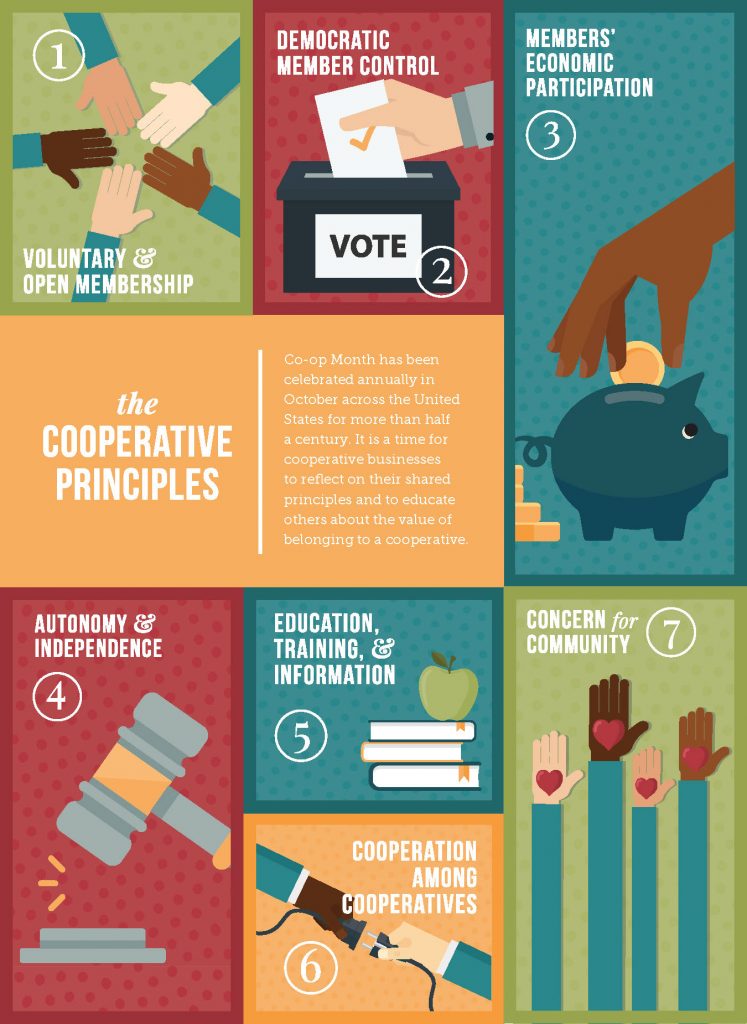
While co-ops operate in many industries and sectors of the economy, seven cooperative principles set co-ops apart from other businesses. The principles were first established in England in 1844 by the Rochdale (rhymes with “Scotch-Dale”) Equitable Pioneers Society, the first modern co-op organization. Over the years, the original guiding principles have been altered and added to, most recently in 1995 by the International Cooperative Alliance. The seven cooperative principles are:
Open and Voluntary Membership
Cooperatives are voluntary organizations. Membership in a cooperative is open to all people who can reasonably use its services and stand willing to accept the responsibilities of membership, regardless of race, religion, gender, or economic circumstances.
Democratic Member Control
Cooperatives are democratic organizations controlled by their members, who actively participate in setting policies and making decisions. Representatives (directors/trustees) are elected among the membership and are accountable to them. In primary cooperatives, members have equal voting rights (one member, one vote); cooperatives at other levels are organized in a democratic manner.
Members’ Economic Participation
Members contribute equitably to, and democratically control, the capital of their cooperative. At least part of that capital remains the common property of the cooperative. Members allocate surpluses for any or all of the following purposes: developing the cooperative; setting up reserves; benefiting members in proportion to their transactions with the cooperative; and supporting other activities approved by the membership.
Autonomy and Independence
Cooperatives are autonomous self-help organizations controlled by their members. If they enter into agreements with other organizations, including governments, or raise capital from external sources, they do so on terms that ensure democratic control as well as their unique identity.
Education, Training, and Information
Education and training for members, elected representatives (directors/trustees), CEOs, and employees help them effectively contribute to the development of their cooperatives. Communications about the nature and benefits of cooperatives, particularly with the general public and opinion leaders, help boost cooperative understanding. (This principle is one of the reasons Indiana Connection, originally called Indiana Rural News, was created in 1951 and comes to you monthly!)
Cooperation Among Cooperatives
By working together through local, national, regional and international structures, cooperatives improve services, bolster local economies, and deal more effectively with social and community needs.
Concern for Community
While focusing on member needs, cooperatives work for the sustainable development of their communities through policies supported by their members.



